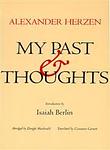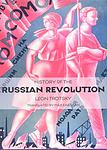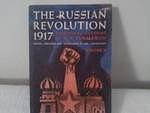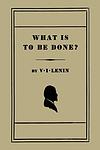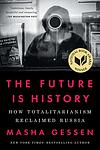The Greatest Russian "History" Books of All Time
Click to learn how this list is calculated.
This list represents a comprehensive and trusted collection of the greatest books. Developed through a specialized algorithm, it brings together 300 'best of' book lists to form a definitive guide to the world's most acclaimed books. For those interested in how these books are chosen, additional details can be found on the rankings page.
Genres
The category of "History" in books refers to the study and interpretation of past events, societies, and cultures. It encompasses a wide range of topics, including political, social, economic, and cultural developments, as well as the lives of individuals and groups who have shaped the course of history. History books can be written from various perspectives and may focus on specific time periods, regions, or themes. They aim to provide readers with a deeper understanding of the past and its impact on the present.
Countries
Date Range
Reading Statistics
Click the button below to see how many of these books you've read!
Download
If you're interested in downloading this list as a CSV file for use in a spreadsheet application, you can easily do so by clicking the button below. Please note that to ensure a manageable file size and faster download, the CSV will include details for only the first 500 books.
Download-
1. War and Peace by Leo Tolstoy
Set in the backdrop of the Napoleonic era, the novel presents a panorama of Russian society and its descent into the chaos of war. It follows the interconnected lives of five aristocratic families, their struggles, romances, and personal journeys through the tumultuous period of history. The narrative explores themes of love, war, and the meaning of life, as it weaves together historical events with the personal stories of its characters.
-
2. Life and Fate by Vasily Grossman
"Life and Fate" is a sweeping epic that explores the human condition during the Siege of Stalingrad in World War II. The novel delves into the lives of a wide range of characters, from soldiers and scientists to children and victims of the Holocaust, providing a stark and unflinching portrayal of the horrors of war, the brutality of totalitarianism, and the resilience of the human spirit. At the same time, it also examines themes of love, loss, and the struggle for freedom and dignity in the face of overwhelming adversity.
-
3. Kolyma Stories by Varlam Shalamov
"Kolyma Stories" is a collection of short stories that vividly depict the harrowing experiences of prisoners in the Soviet Gulag during the Stalinist era. Written by Varlam Shalamov, a survivor of the Kolyma labor camps himself, the book offers a raw and unflinching portrayal of the inhumane conditions, extreme suffering, and moral degradation endured by the prisoners. Through his powerful and haunting narratives, Shalamov sheds light on the resilience of the human spirit and the indomitable will to survive amidst unimaginable cruelty.
-
4. The Life Written By Himself by the Archpriest Avvakum
"The Life Written By Himself" is an autobiographical account by the Archpriest Avvakum, detailing his life as a religious figure in 17th-century Russia. The book chronicles his struggles, including his conflicts with the Russian Orthodox Church, his imprisonment, and his eventual execution. Avvakum's narrative provides a unique perspective on the religious and political climate of the time, showcasing his unwavering devotion to his faith and his unwavering determination to uphold his beliefs, even in the face of persecution.
-
5. My Past And Thoughts by Aleksandr Herzen
The book is a rich and vivid memoir by a prominent Russian intellectual and revolutionary who lived through a period of profound social and political upheaval. It combines personal narrative with philosophical reflections, offering a penetrating look at the author's life experiences, from his aristocratic upbringing to his involvement in radical politics. The work delves into the author's ideological development, his relationships with key figures of his time, and his observations on the social issues and political movements that shaped the 19th century. It is a testament to the author's profound engagement with the ideas of freedom, justice, and human agency in the face of an oppressive regime and a changing world.
-
6. State And Revolution by Vladimir Il’ich Lenin
This seminal political theory text delves into the role of the state in society and the necessity of proletarian revolution to dismantle the bourgeois state apparatus. It argues that the working class must seize state power, dismantle the existing state machinery, and establish a dictatorship of the proletariat as a transitional phase towards the creation of a classless, stateless society. The work critically analyzes the ideas of Marx and Engels on the state, while also addressing the practical aspects of revolution, including the suppression of the bourgeoisie by the proletariat. It serves as a theoretical foundation for understanding the dynamics of class struggle and the path towards socialism.
-
7. Memoirs Of A Revolutionist by Vera Figner
"Memoirs of a Revolutionist" is a captivating autobiography that chronicles the life of a remarkable woman, detailing her journey from a privileged upbringing to becoming a prominent figure in the Russian revolutionary movement. Through her personal experiences and reflections, the author provides a vivid account of the political and social upheaval in 19th-century Russia, shedding light on the struggles, sacrifices, and triumphs of those dedicated to the cause of revolution. This thought-provoking memoir offers valuable insights into the complexities of revolution and the indomitable spirit of those who fight for change.
-
8. Notes From The Blockade by Lydia Ginzburg
"Notes From The Blockade" is a poignant memoir that provides a firsthand account of life during the Siege of Leningrad in World War II. The author, Lydia Ginzburg, vividly describes the hardships, hunger, and constant fear experienced by the city's residents, while also exploring the resilience and strength of the human spirit. Through her powerful narrative, Ginzburg offers a deeply personal and moving portrayal of survival amidst unimaginable circumstances.
-
9. The Memoirs Of Princess Dashkova by Ekaterina Romanovna Dashkova
"The Memoirs of Princess Dashkova" is a captivating autobiography that chronicles the remarkable life of a prominent Russian noblewoman. From her privileged upbringing and close relationship with Catherine the Great to her influential role in the Russian Academy of Sciences, Dashkova's memoirs offer a unique perspective on the political and cultural landscape of 18th-century Russia. With wit, intelligence, and a strong sense of self, Dashkova's narrative sheds light on her personal triumphs, challenges, and the turbulent historical events that shaped her life.
-
10. Requiem by Anna Akhmatova
"Requiem" is a powerful collection of poems that serve as a memorial to the hardships endured by the Russian people under Stalin's rule, particularly focusing on the Great Purge and the Siege of Leningrad. The author, through her deeply personal and emotive verses, gives voice to the suffering and despair of mothers, wives, and daughters who had their loved ones taken away by the regime. The poems are a testament to the resilience of the human spirit in the face of unimaginable adversity, and a poignant tribute to the countless lives lost during this dark chapter in history.
-
11. The Tale Of Igor's Campaign by Unknown
"The Tale of Igor's Campaign" is an epic 12th-century literary work from the Old East Slavic tradition, which recounts the failed military expedition of a Rus' prince against the Polovtsians, a nomadic steppe tribe. The narrative is imbued with a sense of tragic heroism and explores themes of loyalty, courage, and the futility of war. It blends historical fact with legendary elements, showcasing the cultural and political landscape of medieval Kievan Rus'. The text is also notable for its lyrical and stylistic qualities, which have had a lasting influence on Slavic literature and national identity.
-
12. Fallen Leaves by Vasily Rozanov
"Fallen Leaves" is a collection of philosophical and autobiographical essays that delve into the author's musings on a wide range of topics, including religion, sexuality, and society. The work reflects the author's critical examination of modernity and the decline of traditional values, as well as his personal sense of isolation and disillusionment with the contemporary world. Through a series of fragmented and often controversial reflections, the author grapples with the existential challenges of his time, presenting a candid and introspective exploration of the human condition at the turn of the 20th century.
-
13. My Life by Leon Trotsky
This autobiography provides a detailed account of the life of a prominent Russian revolutionary and Marxist theorist. The book traces his early life, education, and political development, his role in the Russian Revolution and Civil War, his leadership of the Red Army, and his expulsion from the Communist Party and subsequent exile. It offers a unique perspective on key events in 20th-century history and an insight into the author's complex personality and intellectual development.
-
14. The Unwomanly Face Of War by Svetlana Alexievich
"The Unwomanly Face Of War" is a powerful and poignant collection of interviews with Soviet women who fought in World War II. Through their testimonies, the author sheds light on the often overlooked and untold stories of these brave women who served as snipers, pilots, nurses, and soldiers on the front lines. The book explores their experiences, sacrifices, and the lasting impact of war on their lives, providing a unique and intimate perspective on the realities of war from a female point of view.
-
15. History Of The Russian Revolution by Leon Trotsky
The book provides a detailed analysis of the Russian Revolution of 1917, written by one of its key leaders. It explores the socio-political and economic conditions that led to the fall of the Russian Empire and the eventual rise of the Soviet Union. The narrative delves into the complex interplay of various classes and political factions, the role of leadership, and the strategies employed during the revolution. The author uses his firsthand experience to offer insights into the events and their significance, presenting a critical examination of the revolution's phases, from the initial uprisings to the consolidation of Bolshevik power.
-
16. The Russian Revolution by N.N. Sukhanov
"The Russian Revolution" is a detailed eyewitness account of the pivotal events that shaped Russia in 1917. The author, a participant and observer in the political circles of Petrograd, provides a comprehensive narrative of the revolution from the February overthrow of the Tsar to the October seizure of power by the Bolsheviks. Through his personal experiences and assessments, the book offers a vivid portrayal of the struggles, the political debates, and the personalities involved in the revolution, including Lenin, Trotsky, and other key figures. The author's unique perspective as a socialist but critical observer of the Bolsheviks adds depth and complexity to the historical analysis of the revolution's development and outcomes.
-
17. What Is To Be Done? by Nikolay Chernyshevsky
The book in question is a novel that serves as a social and political commentary on the mid-19th century Russian society. It follows the lives of a group of young revolutionaries who advocate for the emancipation of serfs and the establishment of socialism through rational egoism and utilitarianism. The narrative focuses on the character development and ideological struggles of these individuals as they navigate love, marriage, and intellectual debates. The novel's didactic message promotes the idea that through education and hard work, a new social order can be achieved, one that is based on equality, reason, and the collective good. It became an influential piece of literature for Russian radicals and later, revolutionaries, inspiring political movements and change.
-
18. A Family Chronicle by Segey Aksakov
"A Family Chronicle" is a nostalgic and vivid portrayal of Russian life in the early 19th century, focusing on the author's own family and childhood. The narrative delves into the customs, traditions, and daily life of the Russian gentry, painting a detailed picture of the era through personal anecdotes and observations. The book is celebrated for its rich descriptions of nature, hunting scenes, and the social fabric of the time, as well as its exploration of the relationships within the author's family, including the bonds between parents, children, and servants. It is a work that combines autobiography with historical insight, offering a window into the soul of Russia during a period of significant change.
-
19. From The Other Shore by Aleksandr Herzen
"From the Other Shore" is a collection of essays and aphorisms that delve into the author's reflections on social and political change during a period of intense upheaval in Europe. Written during the author's exile in the mid-19th century, the work critiques contemporary ideologies and the concept of progress, while exploring the nature of freedom, the plight of the individual in society, and the challenges of revolutionary movements. The author's insights are informed by his own experiences and observations, offering a unique perspective on the revolutionary spirit of the times and the quest for a just society amidst the tumult of historical transformation.
-
20. The Diary Of A Gulag Prison Guard 1935 6 by Ivan Chistyakov
"The Diary Of A Gulag Prison Guard 1935-6" is a chilling and harrowing memoir that provides a firsthand account of the atrocities and cruelty witnessed by Ivan Chistyakov during his time as a guard in a Soviet Gulag prison. Through his detailed entries, Chistyakov reveals the dehumanizing conditions, brutal punishments, and constant fear that both prisoners and guards endured within the oppressive Soviet regime. This haunting narrative serves as a stark reminder of the dark realities of the Gulag system and the lasting impact it had on the lives of countless individuals.
-
21. Russia Is Burning: Poems Of The Great Patriotic War by Maria Bloshteyn
"Russia Is Burning: Poems Of The Great Patriotic War" is a poignant collection of poems that captures the raw emotions and experiences of the Russian people during World War II. Through powerful and vivid imagery, the author delves into the devastating impact of the war on both soldiers and civilians, painting a haunting portrait of loss, resilience, and the indomitable spirit of the Russian people in the face of unimaginable suffering.
-
22. The Future Is History: How Totalitarianism Reclaimed Russia by Masha Gessen
This book provides a deeply researched examination of the resurgence of totalitarianism in Russia, focusing on the lives of four individuals born at what promised to be the dawn of democracy. The book explores how, after the fall of the Soviet Union, instead of moving towards a democratic society, Russia has seen a rise in a new form of totalitarianism under its current leadership. It delves into the psychological shift in the Russian populace, the government's use of homophobia as a method of control, and how the internet and social media have been weaponized for political purposes.
Reading Statistics
Click the button below to see how many of these books you've read!
Download
If you're interested in downloading this list as a CSV file for use in a spreadsheet application, you can easily do so by clicking the button below. Please note that to ensure a manageable file size and faster download, the CSV will include details for only the first 500 books.
Download



